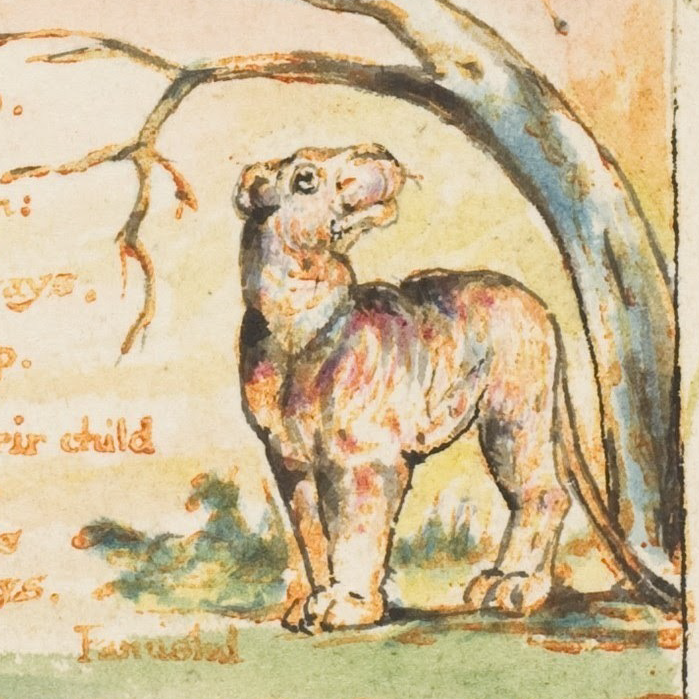Eating Girls
Deleuze and Guattari’s Becoming-Animal and the Romantic Sublime in William Blake’s Lyca Poems
DOI:
https://doi.org/10.52537/humanimalia.10056Abstract
This article argues that Deleuze and Guattari’s concept of becoming-animal is aesthetically as well as structurally related to the discourse of the sublime. It investigates the species politics of both concepts and illustrates their ecocritical potential with an analysis of William Blake’s Lyca poems, “The Little Girl Lost” and “The Little Girl Found,” both published in his Songs of Innocence and of Experience (1794).
Downloads

Published
Issue
Section
License

This work is licensed under a Creative Commons Attribution-NonCommercial 4.0 International License.









